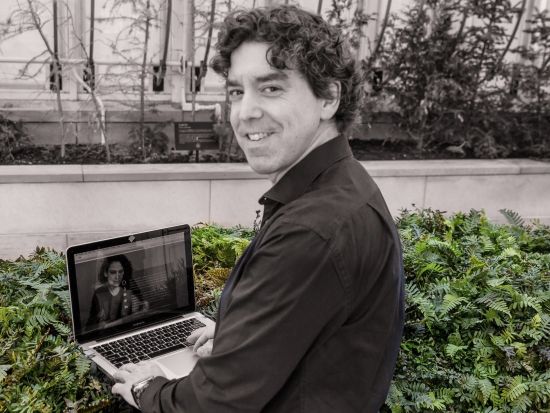How regenerative education helps us respond to the most complex challenges of our time

Dr. Kent Williams (F.C. Manning School of Business) says that we need new ways to teach, lead, and learn in service of planetary wellbeing. We need more than just incremental change—we need an entirely new story for how universities engage with the world, he says.
And from May 2 to 3, the Acadia community has the opportunity to be part of this conversation thanks to an Impact Network for Regenerative Futures (IN4RF) conference being held on campus.
Williams, an assistant professor in Acadia’s F.C. Manning School of Business, through dialogues with colleagues across Canada and internationally, led and initiated the IN4RF through a national SSHRC-funded project. The result is a global, transdisciplinary research and action network dedicated to reimagining how higher education can respond to the complex challenges of our time such as climate change, biodiversity loss, and social inequality, he explains.
Conferences like this, and specifically the IN4RF are important for Acadia, says Williams. We are uniquely positioned to be a leader in regenerative education. With Acadia’s strong community roots, commitment to sustainability, and engaged student body, it provides fertile ground for the kind of transformation IN4RF is cultivating, he says.
The conference itself is both a celebration of the network and a working session to map what regenerative higher education can look like in practice.
Topics include:
- Transforming learning environments to embrace complexity
- Reframing leadership through Indigenous knowledge and land-based learning
- Biodiversity and business: enabling regenerative models
- Student voice and agency in institutional change
- Stories of place and values-led action
Additionally, Williams says the conference will showcase global seed initiatives including local projects that are helping to shift systems from within.
At this conference, students are not just attendees, explains Williams, but they’re also co-creators. Several student-led initiatives will be presented during the gathering ranging from local sustainability projects to climate storytelling. Students will also facilitate sessions, contribute to workshops, and help shape the network’s vision going forward.
“Student voices are central to the transformation we’re working toward,” says Williams.
This conference will be of particular interest, says Williams, to faculty, students, staff, and administrators who care about climate action, equity, community engagement, and the future of education will find this gathering deeply relevant.
In particular, it will be of special interest to those in Environmental & Sustainability Studies, Education, Business, Sociology, Community Development, and Political Science; however, Williams says they welcome anyone curious about transformative learning.
Notable outcomes from the sessions will be to gain insight into how to build regenerative systems within one’s own spheres, whether that’s a classroom, research project, organization, or community. Participants will leave with concrete tools for systems thinking, collaboration across disciplines, and amplifying values in action. Most importantly, they’ll connect with a vibrant network of changemakers working toward a common vision, explains Williams.
Of particular interest to the campus community may be the keynote address scheduled for May 2 at 9 am at the K.C. Irving Centre, which will be delivered by Dr. Eduard Müller, founder and president of the University for International Cooperation in Costa Rica. His keynote, “Regeneration as a Global Imperative: Rethinking Education for Planetary Futures,” will explore how universities must radically shift their purpose and pedagogy to meet the scale of today’s challenges. Participants will walk away with a renewed sense of possibility, and responsibility, to lead transformative change, says Williams.
This gathering, Williams, is not just about hosting a conference. Rather, it’s a chance to build a movement. IN4RF is about co-creating and co-imagining and enabling futures where education becomes a force for healing, justice, and regeneration. Through this, Acadia and the Wolfville community can help shape not just local but global futures, says Williams.
“Everyone has a role to play, and we invite our campus and broader community to be part of this exciting step forward,” says Williams.
Anyone interested in attending the keynote address or the entire conference should register. Attendance can either be in person or online. Details and the registration link are available through Sophia Munden at 161347m@acadiau.ca or by contacting Kent.Williams@Acadiau.ca.
